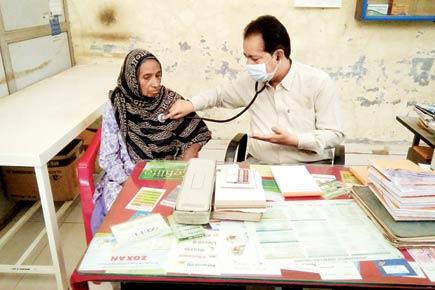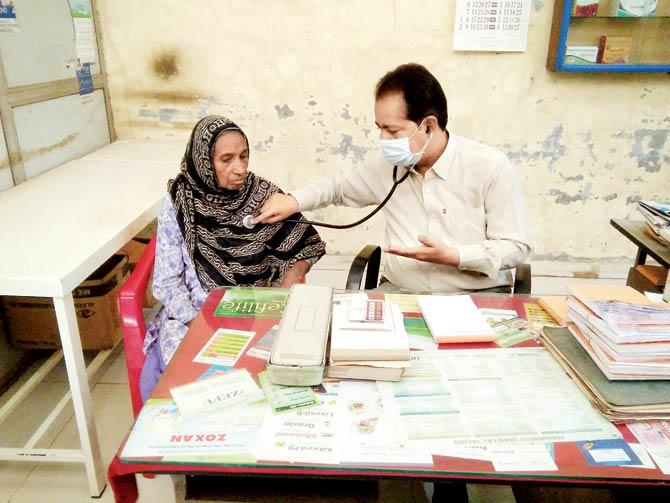Deonar residents suffer similar pollution from the nearby dump yard throughout the year and are at risk of developing chronic ailments and, eventually, a resistance to curative drugs

Wrapped in a blanket of smoke ever since the fire at the Deonar dumping ground, the rest of Mumbai has finally had a taste of what it is like to live near a garbage yard, where rubbish is burnt year-round. Citizens are already complaining of shortness of breath, but doctors have warned that prolonged exposure to such toxic fumes can result in chronic respiratory ailments, eventually leading to a resistance to medical drugs that cure such diseases.
ADVERTISEMENT

A Deonar resident receives treatment for respiratory complaints at a local trust-run medical camp
Even on the sixth day after the fire, the city registered an Air Quality of Index (a measure of air pollution) of 306, according to the System of Air Quality and Weather Forecasting And Research (SAFAR). This is rated as ‘very poor’ air quality, which can result in respiratory illness on prolonged exposure.
Indeed, several Deonar residents, who are frequently exposed to fumes from burning garbage, have already fallen prey to chronic respiratory ailments.
Dr Shelar, the senior medical health official in the M-East ward said, “Around 300 local residents undergo treatment for respiratory illnesses at the local BMC health facility throughout the year.”
“While the toxic fumes from the fire will fade after some time, continuous exposure to industrial activity and toxic fumes from the dumping ground is a health hazard. “The air quality in Deonar falls in the very poor category. It cause issues such as chronic sneezing or cough even in a healthy person. Particulate matter can cause severe problems like bronchitis, asthma and tuberculosis,” said Gufran Beig, project director at SAFAR.
Dr Rahendra Nanaware, medical superintendent of Sewri TB Hospital, who is also a senior chest specialist, confirmed this.
“Toxic fumes can reduce the immunity of residents over a period of time. Similarly, it will affect their lung capacity and make them prone to pulmonary diseases,” said Nanaware.
To treat these ailments, many are already undergoing regular treatment and medication, but while this will relive their condition for now, later on, it could lead to a resistance to drugs. “There is a huge body of work that shows that the pollution shortens life. Anyone taking frequent antibiotics for whatever reason, and irrespective of where they reside, can develop resistant infections in the future,” said Dr Zarir Udwadia, a consulting chest physician at Hinduja Hospital, Breach Candy Hospital and Parsee General Hospitals.
A Deonar resident receives treatment for respiratory complaints at a local trust-run medical camp
 Subscribe today by clicking the link and stay updated with the latest news!" Click here!
Subscribe today by clicking the link and stay updated with the latest news!" Click here!






